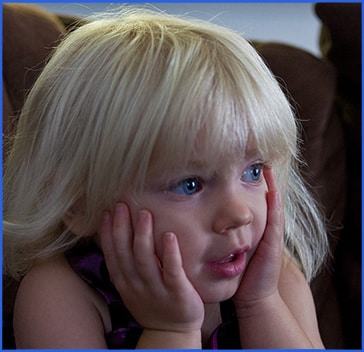
Some call it obesi-TV. Actually, not many do. But it’s a term that deserves to spread. A lot of television programs, including several “reality” shows, center around obesity and related eating disorders. Obesi-TV has become a genre, which Los Angeles Times writer Brendan Borrell described as following:
The programs speak to the fact that obesity has become an overriding cultural obsession, but some experts see them as an unhealthy influence. They fret that the shows’ emphasis on body image can encourage eating disorders and other dangerous behaviors. With participants losing as much as 30 pounds in a single week, they run the risk of heart problems, bone loss and electrolyte imbalances, among other problems.
Borrell sought out a proponent for each side of the question of whether or not such shows as “The Biggest Loser,” “Heavy,” “I Used to Be Fat,” and “Losing It With Jillian” are harmful or not. Lynn Grefe, head of the National Eating Disorders Association, told the reporter that this kind of show perpetuates stereotypes and influences viewers toward unhealthful activities and practices.
Grefe talks about an area that Dr. Pretlow also sees as worthy of attention, the realm of the emotions. Grefe is quoted:
Some weight gain is also an anxiety-driven, binge-eating disorder, and that’s not something I’m hearing discussed. While people on these shows may temporarily lose weight, in the case of eating disorders, they are not addressing the underlying causes of their weight problem. Eating disorders have the highest death rate of any mental illness; more than depression or schizophrenia
This type of TV is fertile ground for exhibitionism, competition, exploitation, voyeurism, and other elements that are not necessarily beneficial for people. Like many other health professionals, Grefe also emphasizes that the educational and cultural focus ought to be not on weight and size, but on health.
For the point of view that sees reality weight-loss shows as capable of having a positive impact, Borrell went to a source who is both nurse and clinical social worker. Lorette Lavine sees competition as a good thing, citing “The Biggest Loser” as a favorite, because the participants get plenty of both support and competition. She also maintains that the show fulfills the requirement for emphasis on overall health.
Lavine is quoted thus:
They… are quite clear that it is not just about dieting but also about maintaining a healthful lifestyle and educating people. They push them to exercise. They work with chefs skilled in healthful cooking. They try to get them to reach their maximum health potential… They have shown a fair amount of people regaining weight on follow-up shows. It’s an ongoing battle.
Now, let’s see what a former “The Biggest Loser” contestant says, as reported by a blogger called “mrrusssss,” in a piece subtitled, “I participated in a myth that hurts people”:
Kai Hibbard, a former contestant on season 3 of The Biggest Loser, is speaking out against what she says are dangerous practices by the show that force contestants to lose weight quickly and make it look to viewers like it’s both possible and healthy… she’s heard from at least six other former contestants who ‘have had experiences at least as bad as mine.’ … She also said she developed an eating disorder as a result of the show… She’s since gained back 70 of the pounds…
Here is an idea for an interesting reality show. It could feature real kids trying out the “W8 Loss 2 Go” iPhone app. Meanwhile, who could have guessed that what Brendan Borrell calls “the travails of America’s flabby majority” would be turned into entertainment, which sometimes reaches the heights of education, and even inspiration, as well as, apparently, the depths of tragedy?
Your responses and feedback are welcome!
Source: “Pros, cons of reality TV’s approach to weight loss,” LA Times, 01/31/11
Source: “Biggest Loser contestant: ‘I participated in a myth that hurts people,’” Zimbio, 06/21/10
Image by BFS Man (Mike Fisher), used under its Creative Commons license.

 FAQs and Media Requests:
FAQs and Media Requests: 












One Response